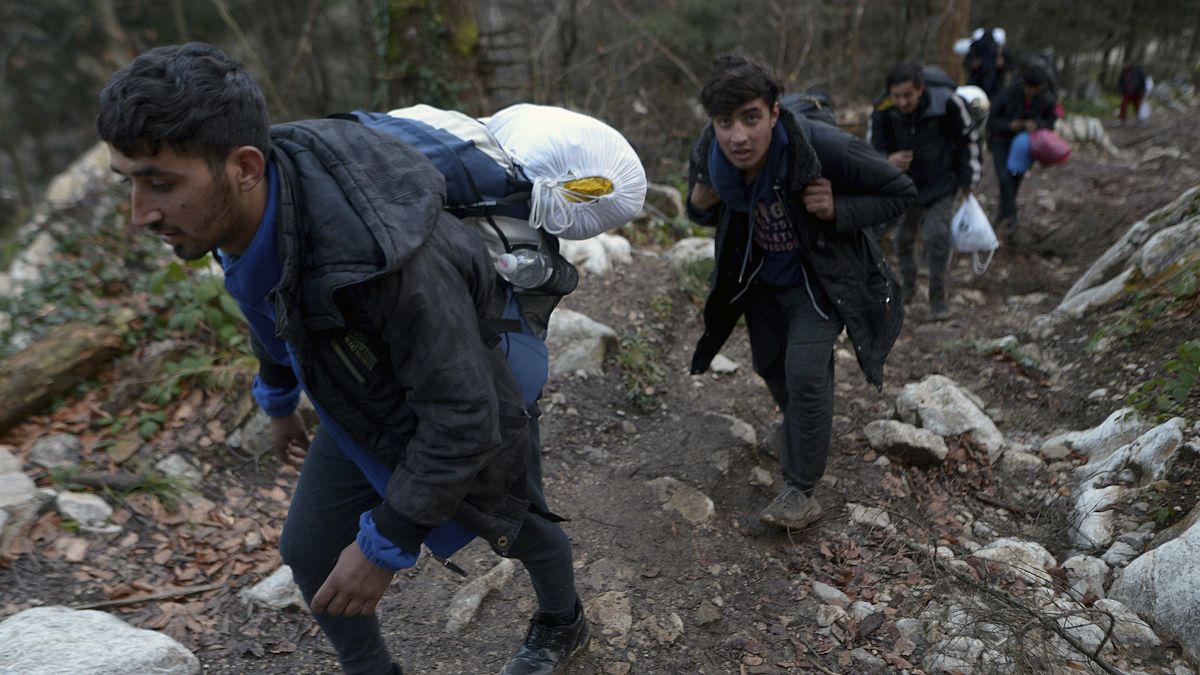It comes after an MEP accused the EU of continuing to give money to Zagreb for border security despite being aware of the abuse accusations
Brussels has urged Croatia to cooperate amid allegations of abuse and violence towards migrants at its border with Bosnia and Herzegovina, Euronews has learned.
It comes after an MEP accused the EU of continuing to give money to Zagreb for border security despite being aware of the abuse accusations. Europe's ombudsman has announced it will investigate the claims.
"I am writing to you about the situation at the borders between Croatia and Bosnia and Herzegovina and the state of the independent monitoring mechanism," said the EU's home affairs commissioner Ylva Johansson in a missive to Croatia's interior minister Davor Božinović, which was seen by Euronews.
"Civil society organisations continue to observe and submit reports on instances of pushbacks and serious violence against migrants that are apprehended at the border which are very concerning. I know that you share my concerns regarding these reports presented as evidence, and I am aware that you are in the process of trying to put in place relevant measures to fully ensure that the fundamental rights of migrants and asylum seekers are respected," the letter also stated.
The Office of the European Ombudsman announced that an investigation has been launched after a report by Amnesty International claimed that migrants were beaten, whipped, and sexually assaulted when trying to cross into Croatia before being forced back across the border.
Mobile telephones have been destroyed, personal belongings removed and people have been forced to walk through snow or frozen river beds, the complaint by Amnesty claimed. There are even reports of migrants sustaining gunshot wounds.
There have been similar reports of violence at the borders of Balkan states against refugees, including in Hungary, Romania, and Greece. Known as the 'Balkan route', migrants often pass through states like Croatia, Bosnia and Herzegovina, and Serbia on their way to claim asylum in the European Union.
Simple questions
The investigation will probe the money given to the Croatian authorities for border management by the European Commission.
"Our questions are very simple, almost journalistic: who, what, when, how, and why. What was where did the money go, who was involved in this mechanism," the European Ombudsman, Emily O'Reilly, told Euronews.
"We have the power to inspect the documents, analyze the Commission's response, which must arrive by January, and pass it on to the complainant (Amnesty). Once this is done if we discover that it is a bad case. administration, we will make recommendations to the European Commission."
Ignoring evidence?
According to Clare Daly, an Irish MEP, the European Union is aware of the violence and, nevertheless, continues to finance the Croatian authorities. That, Daly says, would make her as responsible as those who do these heinous deeds.
Daly accused the European Union of voluntarily ignoring the evidence gathered by organisations monitoring the situation at the EU's external border, as well as not having set up any monitoring mechanism to ensure respect for human rights.
The salaries of the Croatian police forces "are partly paid by the European Union. Therefore, it is important that you make sure that the European Commission continues to allow its funds to be used without demanding respect for human rights," said Eve Geddie, director of Amnesty International at the European institutions.
Euronews contacted the European Commission to respond to the claims. A source said: “There has been considerable follow up on the case by the Commission.”
Johansson's letter also states that the Commission "intends to carry out a visit to Croatia".
Fact-finding conclusions to be received by Ombudsman at end of January
The Office of the European Ombudsman expects an official response from the Commission by 31 January. The request for clarification aims to establish the nature of the control mechanism and how the Commission verified it.
If one has been created, how has its effectiveness been verified? And more generally, how does the Commission ensure that border management operations, paid for with EU funds, guarantee respect for fundamental rights?
The European Ombudsman deals with cases of maladministration by the European institutions. Independent and impartial, he always seeks constructive mediation with the institution under investigation.
If the conciliation attempt fails, the Ombudsman can issue recommendations. If the institution - in this case, the EU Commission - does not accept them, the ombudsman can submit a special report to the European Parliament.
The Ombudsman's decisions are not legally binding, reads the Ombudsman's page, but the compliance rate with his conclusions is high.


